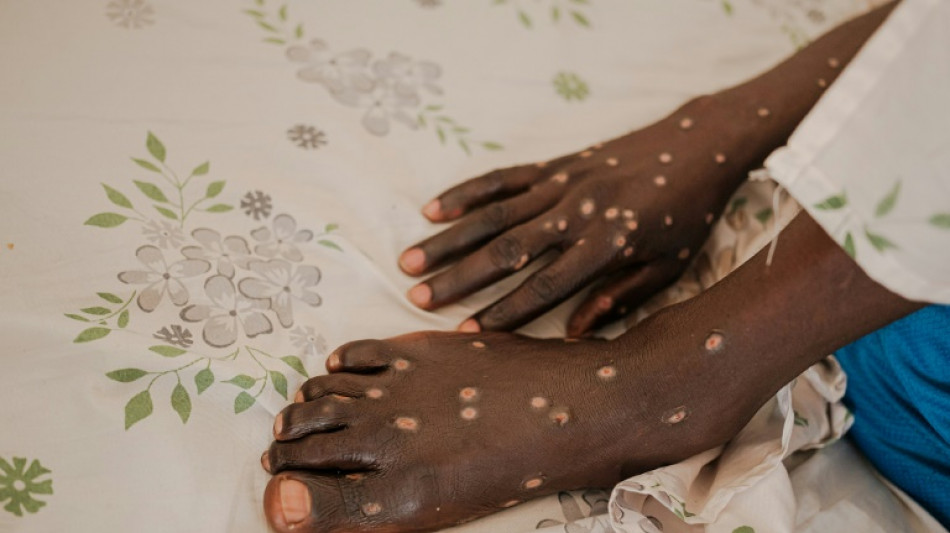
RYCEF
0.1700


The Democratic Republic of Congo, the epicentre of an mpox outbreak, on Thursday received its first vaccines -- almost half of 200,000 doses donated by the European Union and due to arrive by the end of the week to fight its spread.
"The vaccines have arrived in the DRC. They are now on their way to storage areas and the vaccination campaign should begin at the end of the month," Laurent Muschel head of the EU's Health Emergency Preparedness and Response Authority (HERA) told AFP.
Congolese Health Minister Samuel-Roger Kamba and Muschel were present at Kinshasa aitport when the plane carrying 99,100 vaccine doses landed, an AFP journalist said.
The doses left the Danish capital Copenhagen on Wednesday evening.
DRC has recorded more than 19,000 cases and over 650 deaths, according to the latest figures from the health minister.
Mpox is caused by a virus transmitted to humans by infected animals but can also be passed from human to human through close physical contact.
Sometimes deadly it causes fever, muscular aches and large boil-like skin lesions.
"It shows the solidarity between the European Union with Africa and also our capacity to react quickly," Muschel said.
The remainder of the 200,000 doses donated by the EU are set to arrive in Kinshasa on Saturday.
The World Health Organization declared an international emergency on August 14, concerned by the surge in cases of the new Clade 1b strain in the DRC that spread to nearby countries.
Muschel said 560,000 doses will be given by the EU and some of its member states to the DRC and other affected countries.
Mpox is now present in 13 African countries, including Burundi, Congo-Brazzaville and the Central African Republic, according to the Africa CDC.
The vaccines arriving in the DRC this week come from the Danish pharmaceutical laboratory Bavarian Nordic.
It is the only vaccine approved in Europe and the United States and is only intended for adults.
- Logistical challenge -
Trials are currently being conducted for potential use on children over the age of 12.
Another mpox vaccine is authorised in Japan, which has promised a significant number of doses to DRC.
Some 3.6 million mpox vaccine doses have been secured for African countries, according to the Africa CDC, with the DRC, by far the most affected country in the world, being a priority for international health authorities.
Sixty two percent of the mpox cases in DRC have been registered in children, according to the Africa CDC, who also account for four out of five deaths.
According to international health authorities, Kinshasa plans to start its vaccination campaign as early as October.
But DRC will face a major logistical challenge in a territory four times the size of France with poor roads, shambolic infrastructure and erratic power supplies.
The Danish vaccine must also be stored in special conditions, "at minus 20°C, the temperature of a freezer," Muschel said.
Several mpox epidemics are present in central Africa.
The 2022 epidemic was caused by Clade 2 which is still circulating in many countries, including in the West.
But the epidemic in the DRC is caused by the Clade 1 strain, and the situation is becoming more complicated with the appearance of a new version of this subgroup, variant 1b.
The danger and level of contagion of the variant are difficult to assess, according to several specialists.
According to the WHO, cases due to Clade 1b have increased rapidly over the past several weeks but "relatively few deaths have been reported".
Formerly called monkeypox, the virus was discovered in 1958 in Denmark in monkeys kept for research.
It was first discovered in humans in 1970 in Zaire, the former name of DRC.
T.Sato--JT